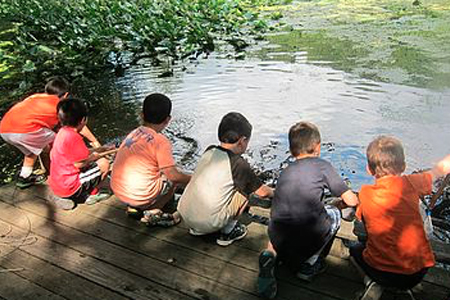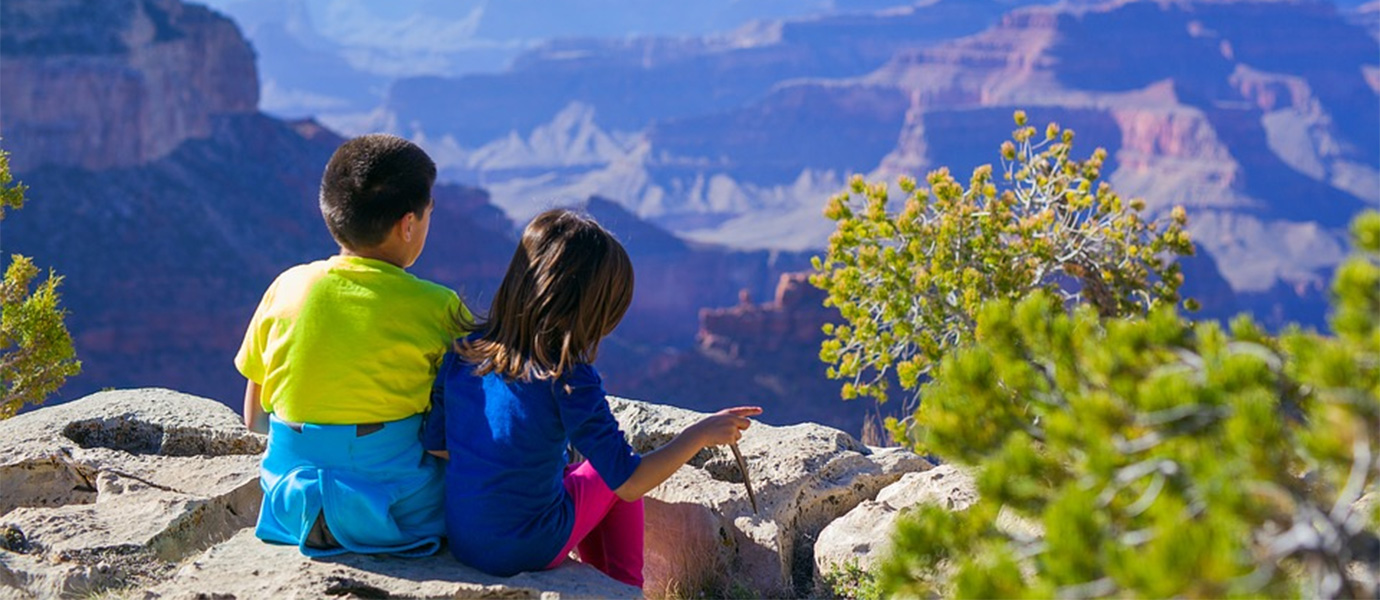
School
Programs cover a range of topics designed to enhance natural science and history curricula. Students can use their five senses to explore the surrounding wetlands and woodlands, scoop the swamp or view unique underwater life cycles, learn about winter survival and hibernation, meet reptiles, dig for bones, hunt for footprints, hike through the different habitats, play a seed dispersal game, identify trees, and more. Most programs can be taught on- or off-site. After school and preschool outreach programs build curiosity using hands-on, nature-based activities.
supports classroom learning in:
Environmental Studies, Science
topics covered:
animals, conservation, ecology, identification, plants, seasons, trees, wetlands
contact info
Name: Nature Center.
Phone: 203-762-7280.
Email: [email protected]
INFO
ABOUT
Woodcock Nature Center
An exciting world of nature and history exists at the Woodcock Nature Preserve. Visitors can explore 3 miles of woodland trails, pond and wetlands ecosystems, historic stone walls, and stands of trees. The Center houses local and exotic animals, including injured birds of prey. Educational programs focus on scientific subjects including life cycles, adaptations, energy flow, and pond studies.
contact info
Hrs: Mon.-Fri. 9:30AM-4PM.
HELPFUL LESSON PLAN(S)
Prepared by FieldTripDirectory.com
Nature Exploration Lesson Plan
FUN FACTS
One single tree can provide the oxygen required for two human beings and over 8,000 sheets of paper. Trees can also clean the soil and air by absorbing harmful pollutants. So what have you done for a tree lately? Nature centers and state parks provide a hands-on environment to discover facts about native plants and animals, as well as ways to preserve these natural resources.
View Lesson Plan>>
Scouts
Scouts can work toward badges and complete service projects. Boy Scouts can work toward requirements for animal and nature merit badges. Girl Scouts can work toward requirements for Brownie Try-Its, and Junior Badges. They might go on a nature hike, meet animals, practice identification and classification, learn about recycling, study geology, and more. At this time, the Nature Center can only provide these programs on weekdays.
supports scout badges in:
Environmental Science, Science
topics covered:
animals, conservation, ecology, geology, identification, orienteering, plants
contact info
Name: Jennifer
Phone: 203-762-7280.
Email: [email protected]
INFO
ABOUT
Woodcock Nature Center
An exciting world of nature and history exists at the Woodcock Nature Preserve. Visitors can explore 3 miles of woodland trails, pond and wetlands ecosystems, historic stone walls, and stands of trees. The Center houses local and exotic animals, including injured birds of prey. Educational programs focus on scientific subjects including life cycles, adaptations, energy flow, and pond studies.
contact info
Hrs: Mon.-Fri. 9:30AM-4PM.
HELPFUL LESSON PLAN(S)
Prepared by FieldTripDirectory.com
Nature Exploration Lesson Plan
FUN FACTS
One single tree can provide the oxygen required for two human beings and over 8,000 sheets of paper. Trees can also clean the soil and air by absorbing harmful pollutants. So what have you done for a tree lately? Nature centers and state parks provide a hands-on environment to discover facts about native plants and animals, as well as ways to preserve these natural resources.
View Lesson Plan>>
Camp
Campers can enjoy learning experiences on the farm and in the forest. Farm tours allow campers to learn about plants and animals, while also seeing what exciting changes fall and spring bring to the farm. They can meet the goats and sheep, try foods from the garden, see the harvest, spin wool and yarn, and more. Themed forest hike field trips are also available, and cover topics such as group building, plants and animals, habitats, ecosystem interactions, and the Long Island Sound watershed.
topics covered:
animals, conservation, ecology, identification, plants, seasons, trees, wetlands
contact info
Name: Nature Center
Phone: 203-762-7280.
Email: [email protected]
INFO
ABOUT
Woodcock Nature Center
An exciting world of nature and history exists at the Woodcock Nature Preserve. Visitors can explore 3 miles of woodland trails, pond and wetlands ecosystems, historic stone walls, and stands of trees. The Center houses local and exotic animals, including injured birds of prey. Educational programs focus on scientific subjects including life cycles, adaptations, energy flow, and pond studies.
contact info
Hrs: Mon.-Fri. 9:30AM-4PM.
HELPFUL LESSON PLAN(S)
Prepared by FieldTripDirectory.com
Nature Exploration Lesson Plan
FUN FACTS
One single tree can provide the oxygen required for two human beings and over 8,000 sheets of paper. Trees can also clean the soil and air by absorbing harmful pollutants. So what have you done for a tree lately? Nature centers and state parks provide a hands-on environment to discover facts about native plants and animals, as well as ways to preserve these natural resources.
View Lesson Plan>>
